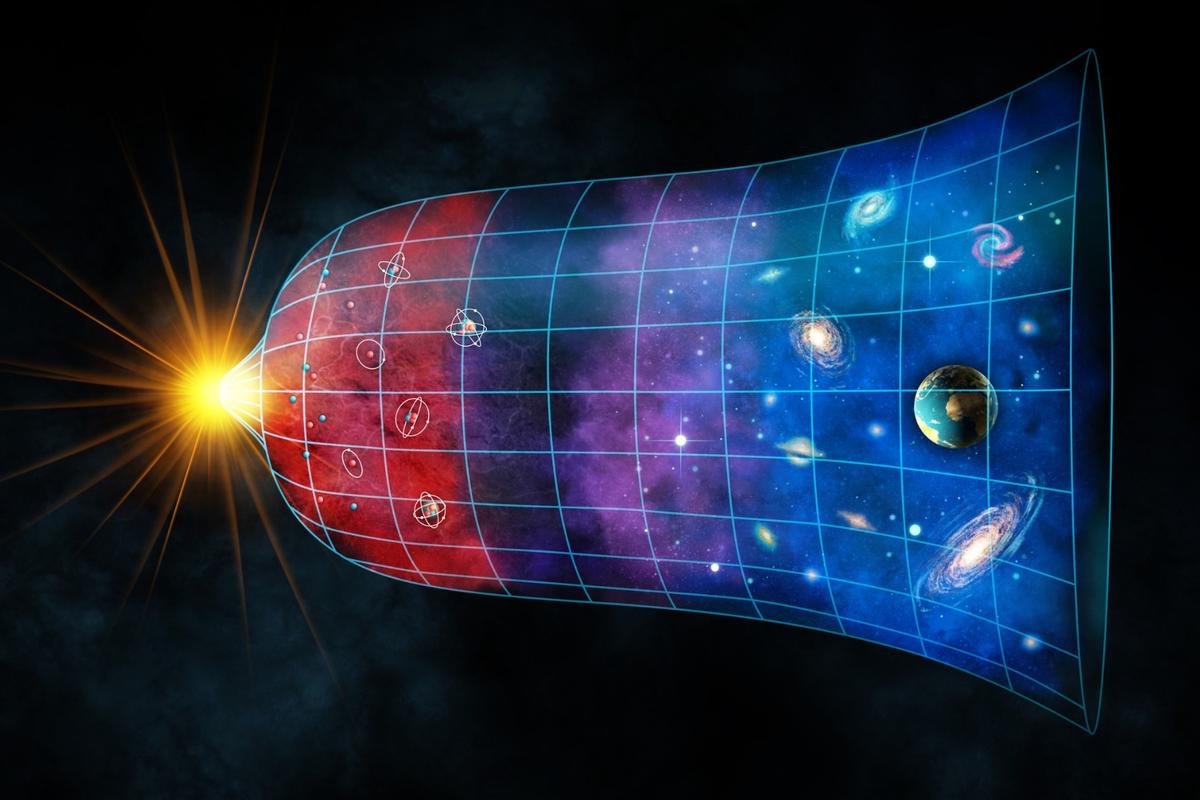
The Genesis Bible and the Big Bang Theory Paper
Throughout history, scientists and theologians have been
in a debate on the creation of the universe. The Bible seems to always
contradict scientific discoveries, especially the theory of Big Bang. The
article “Cosmic Controversy: The Big Bang and Genesis 1” by Alex Philippidis
suggested an alternative to the debate. Philippidis implies that “Big Bang and
Genesis 1 cannot be truly be reconciled…Big Bang attempts to explain how the
universe was created. Genesis 1 attempts to explain who created it” (Philippidis
9). Since God is the Alpha and Omega, He is the Being behind the creation of
the universe. This results in the conclusion that God as the creator does not
exclude the possibility of a cosmic expansion such as Big Bang. In order to
truly understand the interconnection between Genesis 1 and Big Bang, we must
first have the knowledge of the Big Bang concept.
The
Big Bang Theory states that “between 10 and 20 billion years ago, the universe
burst and expanded rapidly from a submicroscopic ‘cosmic egg’ containing all
matter and energy to a cosmic fireball at least 10 billion degrees Kelvin”
(Philippidis 1). Starting from a small singularity, it expanded and finally
burst into matters. Over a significant amount of time, around 300,000 years the
“fireball cooled to 3000 degrees Kelvin, enough to form subatomic particles” (Philippidis
1) which later brought by the gravity to form “galaxies, stars, planets, and
the black void that comprise the modern universe” (Philippidis 1). In 1992, the
Cosmic Background Explorer (COBE) Satellite “recorded temperature fluctuations
of about 30 millionths of a degree Kelvin” (Philippidis 2). This offers a piece
of evidence to the Big Bang Theory, highlighting the fact that the creation of
the universe must have taken place billions of years ago. This then brought the
question of whether God created the universe for just 6 24 hour days.
First,
we must be aware that Genesis 1 is narrative history literature. Narrative
history literature emphasizes the fact that the event is true, but it is not
explained in a detailed or scientific way. One example of where we could see
there are some phrases that don’t mean the literal meaning is in Genesis 1:16:
“the greater light to govern the day and the lesser light to govern the night” (NIV).
This is a form of personification that is applied to the sun, moon, and stars.
Moses, the author of Genesis, did not explain explicitly that the light (or
sun) is made up of carbon, nitrogen, and helium. Instead, he only points out
that the greater light is to govern the day. For that reason, we couldn’t
expect Moses to point out the process of the explosion and the expansion in
creating the universe.
Second,
we cannot assume that God is confined to human time. Just as the Gregorian
calendar is different from the Lunar calendar, we cannot assume that God works
in the concept of time that humanity has. “A transcendent God acted outside of
time and space and created matter” (Phillipidis 5). God’s conception of days of
the creation might not mean 24 hours a day. Instead, it could mean millions or
maybe billions of years in a day.
Third,
just like Newton’s first law of motion, a body at rest will remain at rest, and
a body in motion will remain in motion with a constant velocity unless acted
upon by a force. If we do believe in the theory of Big Bang, then there must be
an outside force that applied in the first place, or else it would have been at
rest or in constant motion. There must be a cause that made the universe to
“burst and expanded rapidly from a ‘cosmic egg’” (Philippidis 1). Therefore,
God must have taken a part in the creation of the universe, or else there won’t
be any expansion in the universe.
In
conclusion, Genesis and the Big Bang theory may have different perspectives on
the creation of the universe. Since Genesis 1 is narrative history literature,
there are no details such as Big Bang theory written in the book itself. Also,
God’s concept of time may be distinct from the human concept of time. Lastly,
there must be an initiator behind every motion in the Big Bang theory, and
therefore God’s role takes place in the creation. The Big Bang and Genesis 1
could not be truly reconciled for they answer different questions. However, I
believe that God is the Creator of the Universe, and Big Bang might be one of
the answers to the process when God created the universe.
Comments
Post a Comment